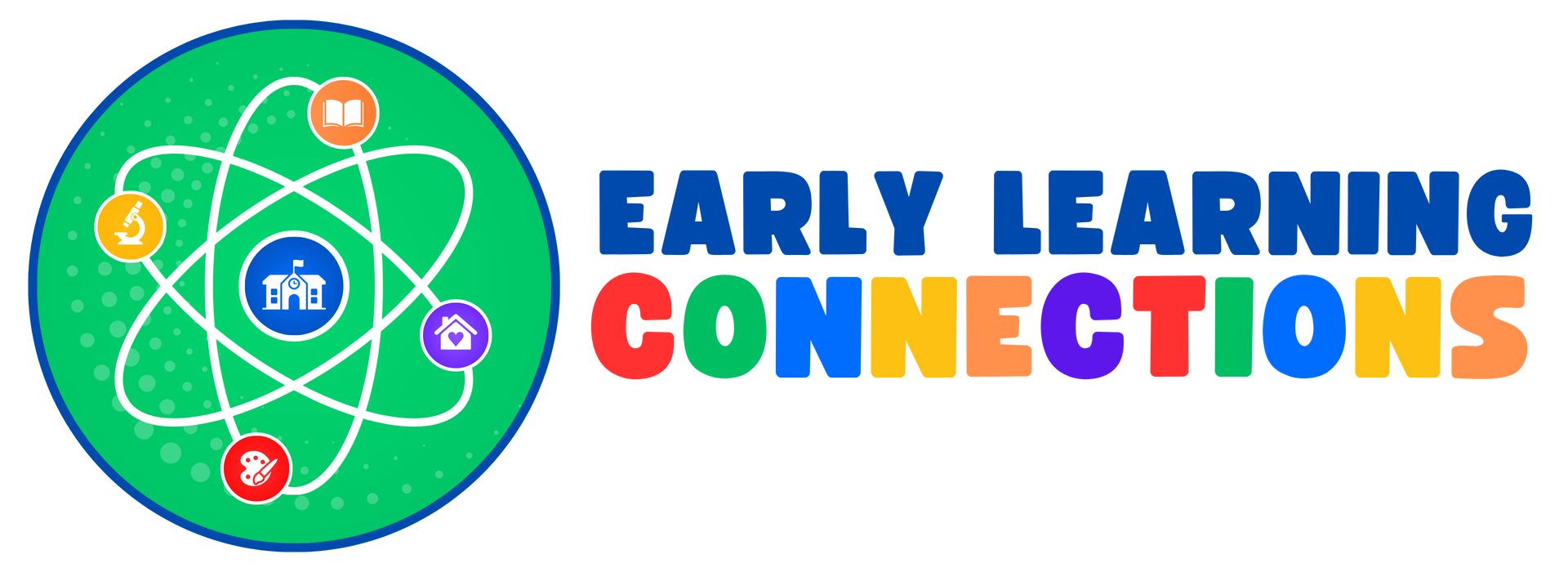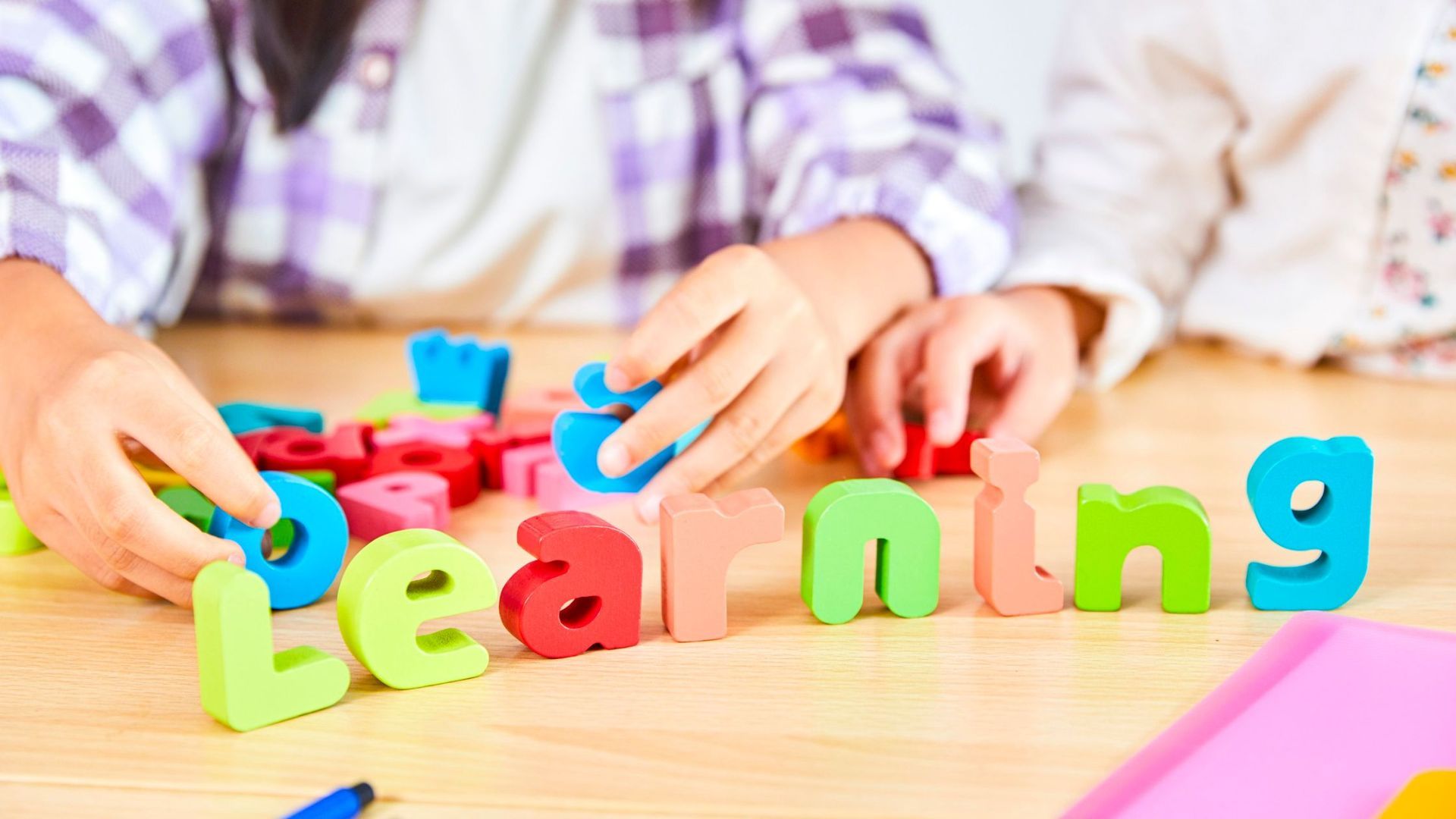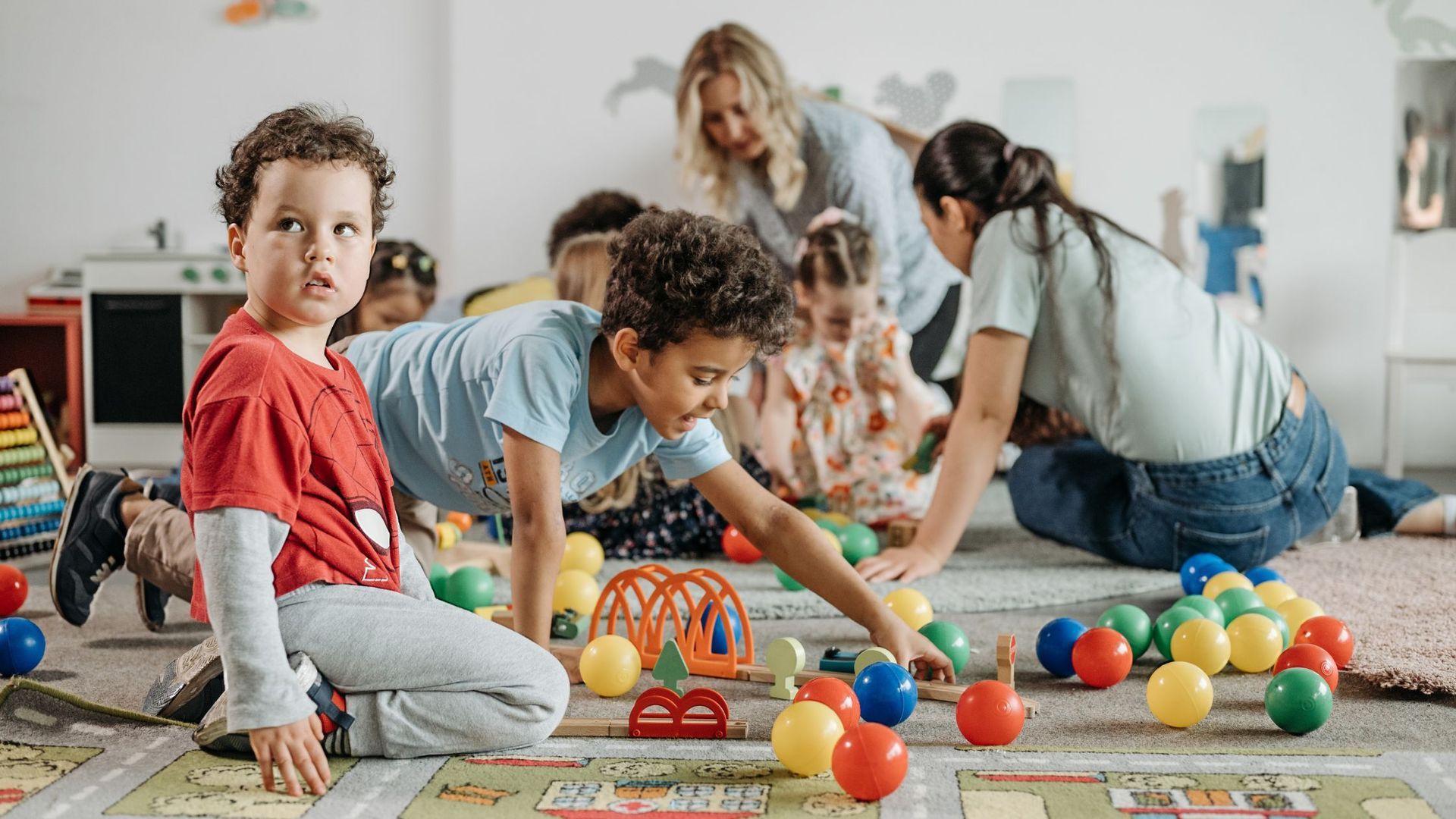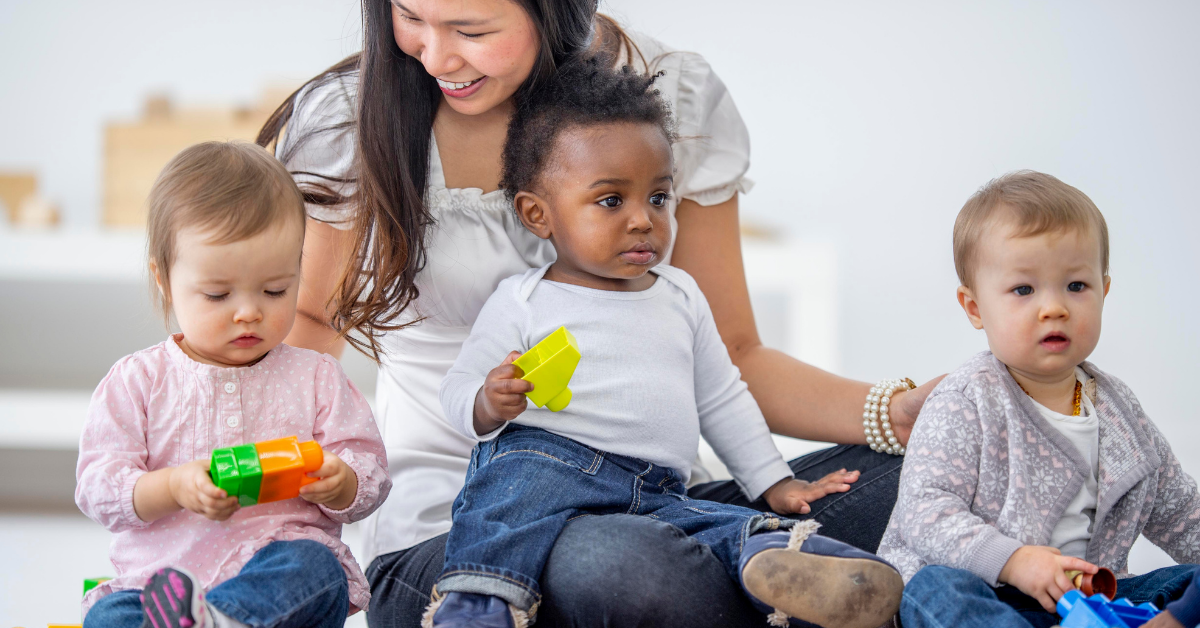How Dramatic Play Enhances Social and Emotional Skills

Dramatic play, often referred to as pretend play or imaginative play, is one of the most important and enjoyable ways children engage with the world around them. Through role-playing activities, children assume various roles—such as a parent, teacher, doctor, or superhero—and act out different scenarios. These playful activities not only provide fun and entertainment but also play a crucial role in enhancing social and emotional skills. In this blog post, we’ll explore how dramatic play fosters essential social and emotional development, from building empathy to improving communication skills and self-regulation.
The Role of Dramatic Play in Early Childhood Development
Dramatic play encourages children to use their imagination, creativity, and problem-solving skills. It is a versatile activity that can be structured or spontaneous, providing opportunities for children to express themselves in a safe, open-ended environment. This form of play allows children to step into someone else's shoes, which is instrumental in understanding both themselves and others.
Through dramatic play, children learn how to interact with peers, navigate social rules, and manage their emotions in a fun and non-threatening way. Role-playing activities offer a natural setting for practicing and reinforcing the social and emotional skills they will need throughout their lives. But what exactly makes dramatic play such a powerful tool for developing these skills?
1. Enhancing Empathy
Empathy, the ability to understand and share the feelings of others, is a fundamental social skill that helps children develop strong relationships and navigate social situations. Dramatic play provides children with the opportunity to experience the world from someone else’s perspective. Whether pretending to be a parent comforting a child, a doctor helping a patient, or a teacher guiding students, children are able to connect with emotions outside their own experiences.
How Dramatic Play Builds Empathy:
- Role Reversal: When children pretend to be someone else, they step outside of their own personal feelings and circumstances, gaining an understanding of the experiences of others. For instance, when playing house or family, a child may take on the role of the caregiver, learning about responsibilities and caring for others. This helps children understand that people have different roles, emotions, and needs.
- Exploring Different Emotions: In dramatic play, children often act out scenarios where characters are feeling various emotions—happiness, sadness, frustration, and excitement. By exploring these emotions in their play, children not only identify and label emotions but also practice responding to them in a thoughtful way. For example, when playing "store," a child may role-play a situation where a customer feels upset about not being able to buy something. This encourages the child to consider how to comfort or resolve the situation, fostering empathy.
2. Improving Communication Skills
Effective communication is an essential skill that children will use throughout their lives, and dramatic play offers numerous opportunities to practice these skills. As children engage in role-playing activities, they must use language to express ideas, solve problems, and interact with others.
How Dramatic Play Enhances Communication:
- Language Development: Dramatic play encourages children to use language in a context that’s more dynamic and creative than typical conversations. Whether they're negotiating with a friend over the rules of their game or pretending to be a customer and a salesperson, children practice using new words, asking questions, and making requests. These scenarios foster both vocabulary development and sentence structure, helping children become more confident communicators.
- Non-Verbal Communication: Beyond words, dramatic play also helps children practice non-verbal forms of communication, such as body language, facial expressions, and gestures. For example, when a child pretends to be a doctor, they may mimic medical procedures with tools like stethoscopes or bandages, learning how to express themselves through actions and gestures, not just words.
- Negotiation and Problem-Solving: Dramatic play often involves cooperative play with other children. In these interactions, children need to work together, negotiate roles, and resolve conflicts. For example, if one child wants to be the "mom" and another wants to be the "dad," they might negotiate how to split up tasks. This process of negotiation strengthens communication skills and helps children practice both giving and listening to suggestions.
3. Fostering Emotional Regulation
Dramatic play provides children with the chance to experiment with emotions and practice self-regulation in a controlled setting. Because children often reenact different scenarios, they are exposed to emotional highs and lows—such as the excitement of a birthday party or the frustration of losing a game—and can learn how to manage these feelings.
How Dramatic Play Helps with Emotional Regulation:
- Exploring Emotional Scenarios: By acting out different roles and scenarios, children experience a wide range of emotions. They might play the role of a firefighter saving the day or a teacher helping students solve problems. Through this play, children begin to understand that emotions like frustration, joy, or sadness are normal and can be expressed appropriately.
- Practice Self-Control: As children engage in dramatic play, they practice controlling their impulses and managing their emotional responses. For example, if one child is acting as the "parent" in a play scenario and their "child" is misbehaving, the child in the parental role will practice patience, managing their reactions and speaking in a calm, composed manner.
- Developing Coping Skills: Dramatic play also offers children the chance to experiment with different ways of coping with challenging situations. For example, if a character in their play is upset, they may decide to use calming strategies, such as counting to three, taking deep breaths, or talking about their feelings. These coping strategies are essential for emotional regulation in real-life situations.
4. Promoting Social Skills and Cooperation
One of the most important benefits of dramatic play is the way it helps children develop social skills, including cooperation, teamwork, and conflict resolution. Dramatic play often involves group activities, where children must collaborate, share, and respect each other’s roles and ideas. Through these interactions, children learn how to negotiate, follow rules, and take turns.
How Dramatic Play Promotes Social Skills:
- Teamwork and Sharing: Dramatic play typically involves two or more children, which provides an ideal environment for practicing teamwork. Whether they’re building a fort together or playing "store," children must work as a team to achieve a common goal. This teaches them how to share, cooperate, and communicate effectively with others.
- Role Flexibility: As children engage in dramatic play, they often switch roles, allowing them to practice flexibility and adaptability. For example, during a "restaurant" game, one child may take turns being the waiter, while others play the roles of customers. This helps children develop social flexibility, learn to collaborate, and understand that social roles can change depending on the situation.
- Conflict Resolution: In any social interaction, conflict is bound to arise. Dramatic play provides a safe space for children to navigate these conflicts. For instance, if one child wants to play the doctor and another wants to be the nurse, they will have to negotiate their roles or find a way to share. These situations teach children how to resolve disagreements and come to compromises.
5. Building Self-Esteem and Confidence
Dramatic play can also build self-esteem and confidence. By stepping into different roles and acting out various scenarios, children gain a sense of mastery and control over their environment. This boosts their confidence in their ability to navigate social situations and communicate their needs effectively.
How Dramatic Play Builds Confidence:
- Mastering New Roles: As children engage in dramatic play, they gain a sense of accomplishment from successfully portraying different characters. Whether they’re pretending to be a doctor treating a patient or a chef cooking in a kitchen, they develop a sense of mastery over these roles, which boosts their confidence.
- Positive Reinforcement: As children act out roles and cooperate with peers, they receive positive feedback from caregivers and friends, which strengthens their self-esteem. Encouraging children to lead role-playing activities or take charge of a particular aspect of the game helps them feel capable and valued.
Dramatic play not only supports social and emotional growth but also complements structured routines, which provide children with a sense of stability and confidence. Learn more about the benefits of routine and structure for young children here.
Additionally, fostering imaginative play from infancy can enhance cognitive and emotional development. Discover useful tips for nurturing infant development here.
Conclusion
Dramatic play is not just a fun and engaging activity; it is a powerful tool for promoting social and emotional development in young children. Through role-playing, children enhance their empathy, communication skills, emotional regulation, and social abilities. Whether it’s through the act of sharing, negotiating roles, or practicing self-control, dramatic play provides children with a dynamic environment to explore their emotions, practice social skills, and build the confidence needed to navigate the world.
As parents and caregivers, you can encourage dramatic play by providing a variety of materials (such as costumes, props, and toys) and creating opportunities for playdates or group activities. The more opportunities children have to engage in imaginative play, the more they will develop the social and emotional skills that are essential for their success in school, relationships, and beyond.










